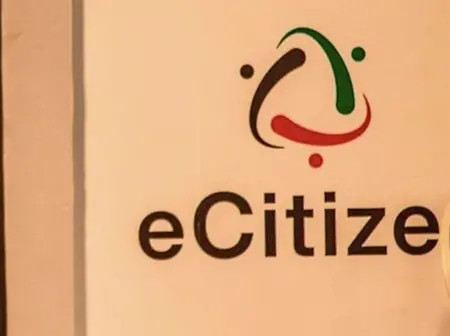When the Kenyan government launched the eCitizen platform in 2014, the promise seemed simple: bring services closer to the people through one digital window.
Ten years later, the portal has evolved into the country’s primary revenue collection system, a backbone of transparency, and an unlikely champion in the war against corruption.
Figures from the National Treasury show that since its inception, eCitizen has processed more than 17 million applications and collected over Ksh95 billion in payments across government departments.
In its early years, the system handled just over Ksh100 million a day. Today, the portal channels between Ksh700 million and Ksh1 billion every day, depending on the season. Officials say that in some peak months, collections average a staggering Ksh1 billion per day, translating to more than Ksh200 billion a year flowing into the exchequer through one platform.
The numbers tell a bigger story: funds that previously leaked through cash offices and “informal facilitation” payments are now being captured digitally, in real-time, into government coffers. Every transaction is traceable, auditable, and receipted instantly through SMS and email notifications to citizens.
At the centre of this success is Paybill 222222, the single checkout point for all government payments. Whether one is applying for a passport, renewing a driving licence, registering a business, paying land rates, or applying for a marriage certificate, all payments are funnelled into one account.
This single-paybill model has cut off middlemen and drastically reduced opportunities for fraud. Previously, citizens often faced demands for “extra fees” at service counters, with no guarantee that the money reached the Treasury. Today, the official tariffs are displayed upfront on the eCitizen platform, making it easier to resist any additional demands.
A government audit of the platform’s governance shows how its operations are funded: through a Ksh50 convenience fee attached to transactions. Since the state took full ownership of eCitizen in 2023, this structure has become more transparent, boosting public trust.
The platform is also transforming the citizen experience. Services that once required multiple visits to government offices and endless queues can now be accessed with a smartphone. For example:
Citizens walk away not just with convenience but also a personal record. The instant digital receipt system means Kenyans have their own audit trail, which they can use to contest irregularities.
A study by the Kenya Institute for Public Policy Research and Analysis (KIPPRA) found that investment in e-government platforms like eCitizen correlates with improved scores in governance, public service delivery, and control of corruption.
While the study notes that impact is strongest in higher-income countries with advanced infrastructure, it underlines a clear policy lesson: for lower-middle-income countries like Kenya, sustained investment in digital platforms directly strengthens the fight against corruption by reducing face-to-face transactions where petty graft thrives.
Yet, the impact of eCitizen depends on access. According to recent statistics, just 35 per cent of Kenyans used the internet in 2024. Nairobi leads with nearly 65 per cent connectivity, but rural constituencies are far behind, limiting the reach of digital government.
To bridge this gap, the State has launched an ambitious programme to lay 100,000 kilometres of fibre optic cable and roll out 25,000 Wi-Fi hotspots across the country, especially in markets and trading centres. The goal is to bring rural Kenyans into the digital economy and ensure eCitizen is not just a service for urban smartphone owners but for every citizen.
The benefits go beyond convenience and transparency. As eCitizen expands, communities are seeing new opportunities. Marshals and stewards recruited around fan zones during CHAN 2024 events were paid digitally through the system, creating both jobs and trust. Small businesses—from cyber cafes to mobile money agents—have also found new revenue streams by helping people access eCitizen services in areas with low internet penetration.
eCitizen has transformed how Kenyans pay for and access government services. It has made queues shorter, payments clearer, receipts automatic, and corruption harder.
As one Treasury official remarked, “eCitizen has turned the government’s cash register digital—and in the process, it has shut many of the back doors.”
Kenya’s war on corruption is far from over. But in eCitizen, the country has found a quiet workhorse—one that is proving technology can make governance cleaner, faster, and more accountable.

Leave a Reply